Suan Dusit University (SDU) has embedded sustainability into its agricultural, educational, and food management systems through a strong commitment to sustainable land use, environmentally responsible farming, and safe food production. In line with the university’s Policy on Environmental, Energy, and Resource Quality Management, SDU envisions itself as a living laboratory for sustainability—where teaching, research, and community engagement converge to promote the responsible use of land and natural resources. This policy explicitly supports sustainable food systems by enhancing local agricultural practices, reducing environmental impacts, and ensuring that food served or produced within the university aligns with Good Agricultural Practices (GAP) standards.
At the heart of this initiative is Hom Kachon Farm, located at Suan Dusit University’s Suphan Buri campus. The farm serves as a model for sustainable agriculture, organic food production, and green campus development, integrating modern agricultural technology with environmental stewardship. The farm cultivates a diverse range of chemical-free vegetables and fruits, including melons, cherry tomatoes (Sweet Girl variety), various lettuce species, spaghetti and butternut squash, basil, and cosmos flowers. All crops are grown under certified GAP standards, across different production zones such as smart greenhouses, semi-smart greenhouses, open fields, and demonstration plots. This comprehensive approach illustrates SDU’s commitment to biodiversity conservation, soil health improvement, and sustainable resource management, serving as both a research site and a training ground for students and local farmers interested in sustainable livelihoods.
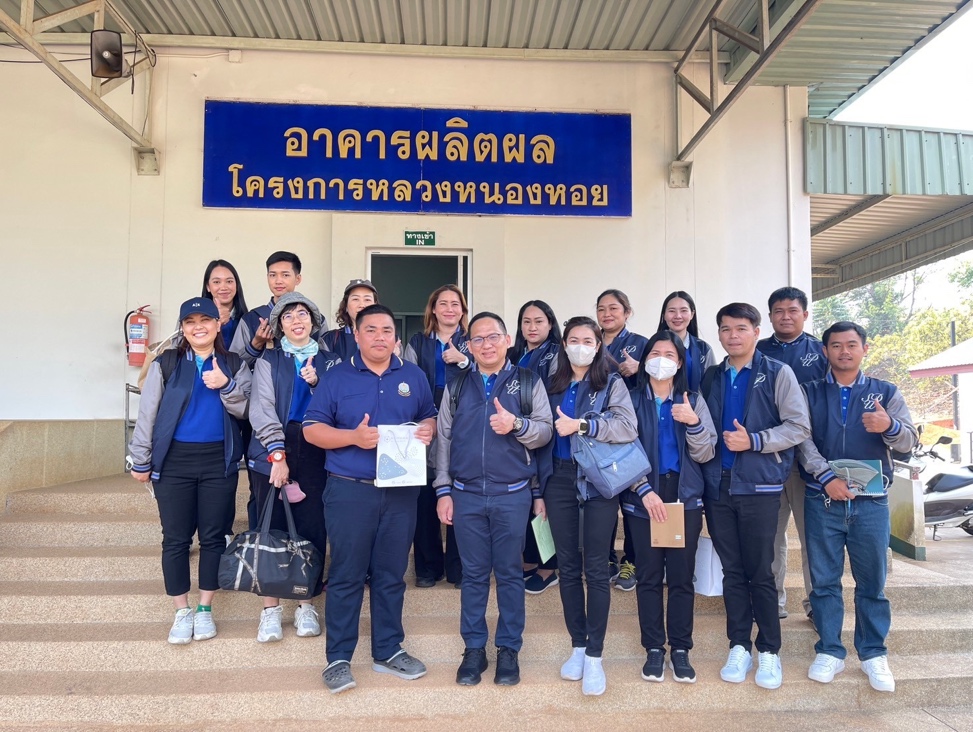
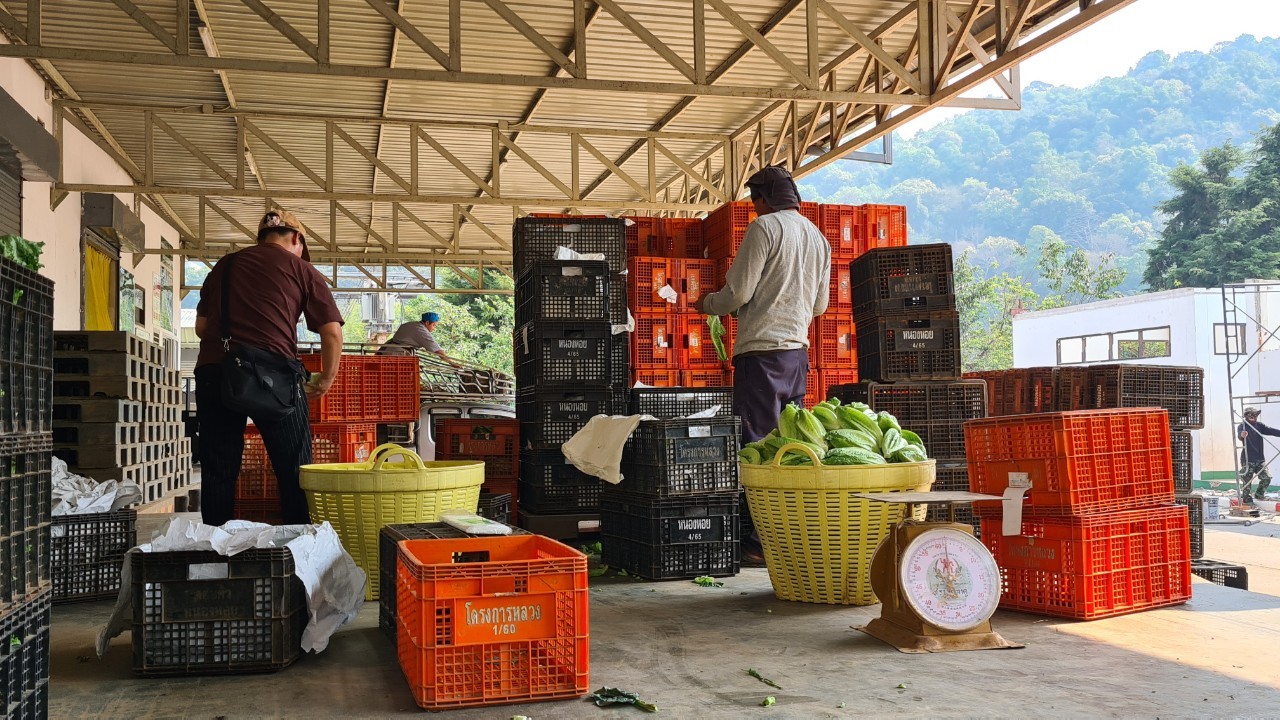
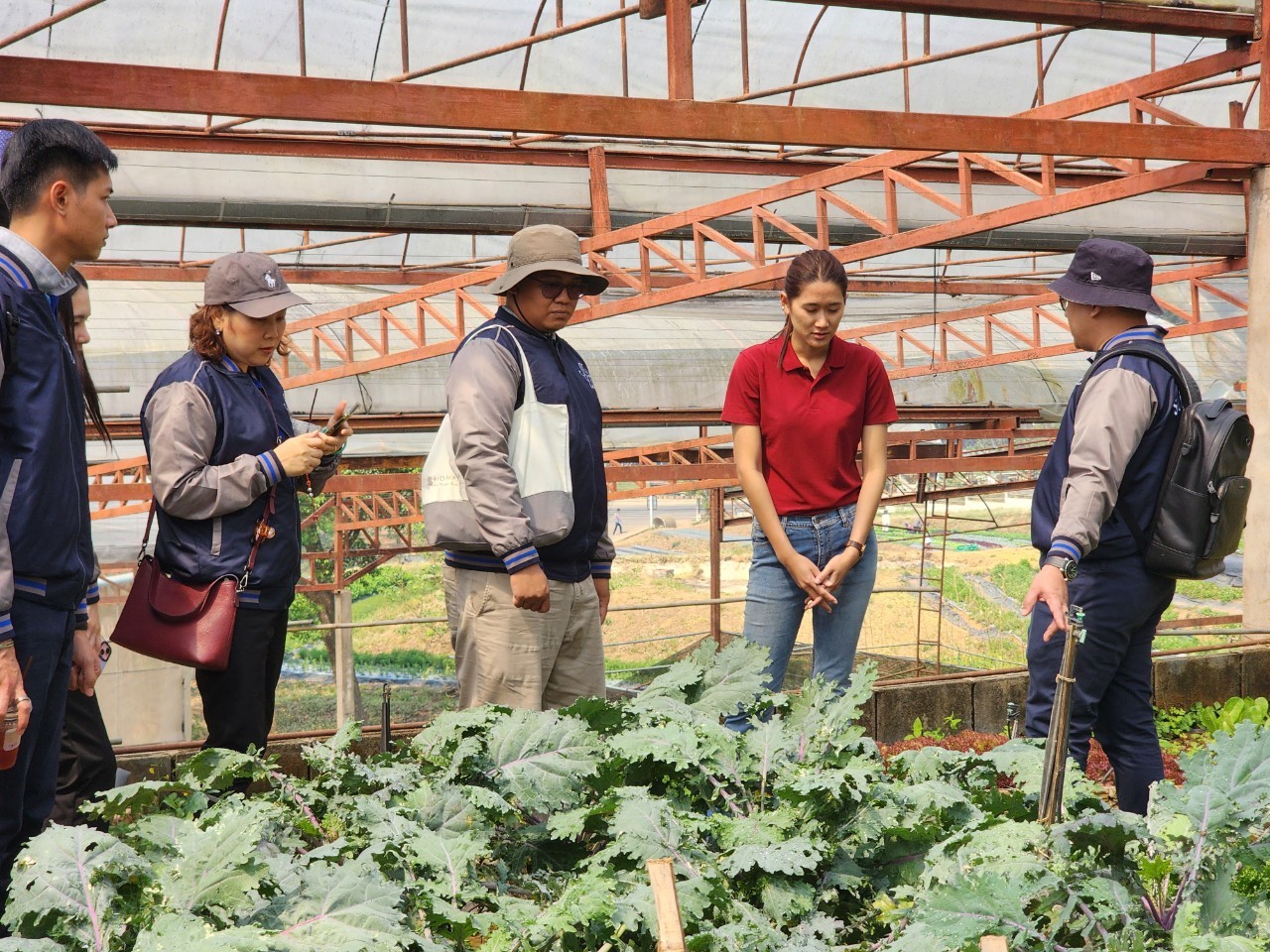
In 2024, the Institute of Research and Development (IRD) spearheaded a project to strengthen knowledge and capacity in sustainable agricultural management. Led by Asst. Prof. Dr. Yutthaya Yuyen, the IRD team—including 15 faculty members and staff—conducted a study visit to the Royal Project Development Center at Nong Hoi, Chiang Mai, to learn from one of Thailand’s most successful models of environmentally sustainable agriculture. The visit covered GAP-certified farming systems, integrated pest management, hydroponic cultivation of vegetables like celery, and greenhouse production of high-value crops such as strawberries. Insights from this visit have since been incorporated into the management of Hom Kachon Farm, improving its sustainable farming techniques, food safety standards, and supply chain traceability from production to consumption.
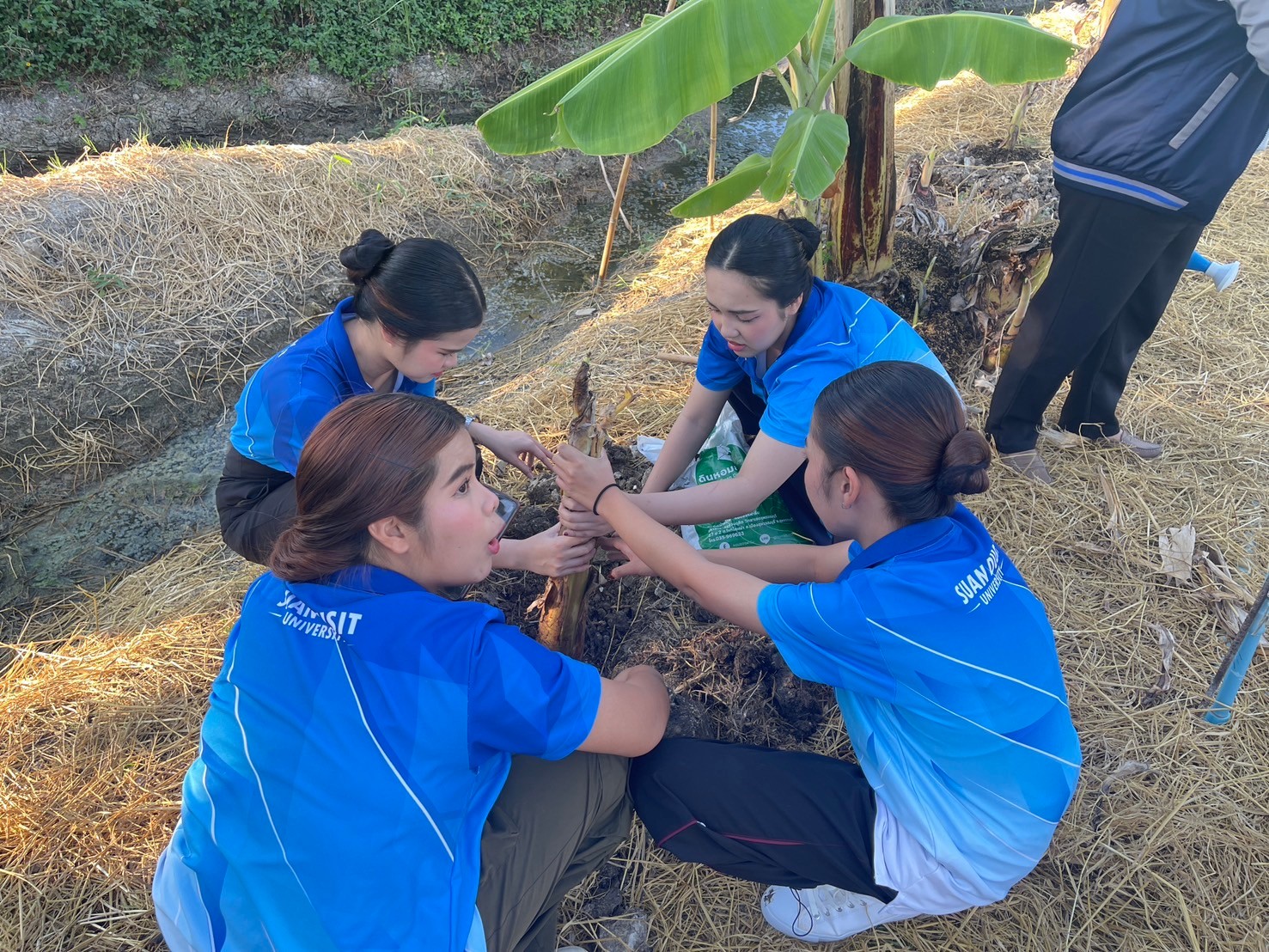
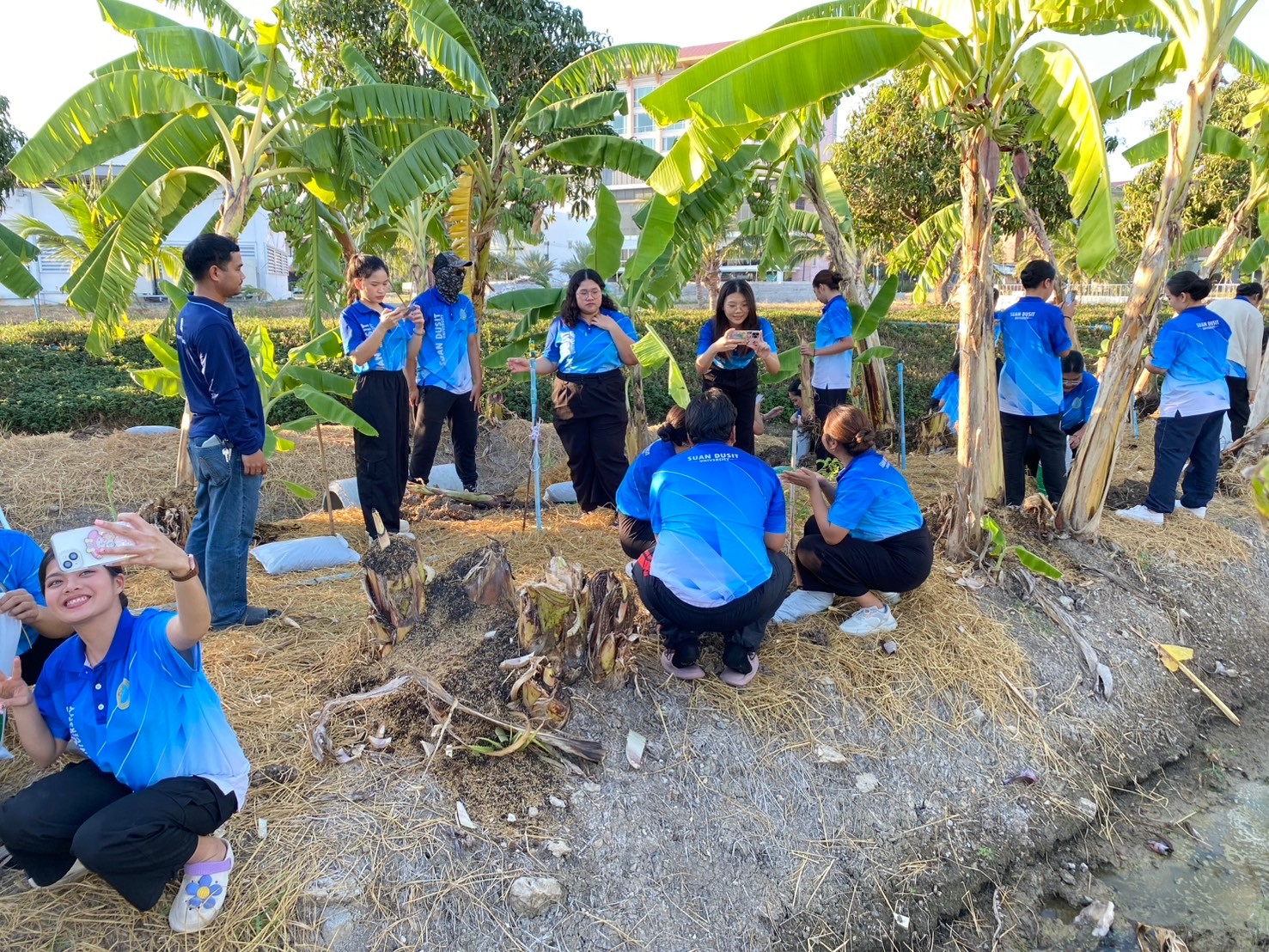
Moreover, SDU integrates environmental education and service learning into sustainable agriculture. On 9 December 2024, the Faculty of Education organized a hands-on learning activity for first- and second-year students, allowing them to cultivate bananas following safe and sustainable farming practices. This learning experience deepened students’ understanding of eco-friendly agriculture, soil and water conservation, and the importance of food security, reflecting the university’s educational philosophy that combines knowledge creation with real-world environmental responsibility.
Suan Dusit University has also advanced the concept of “From Farm to Table”, linking sustainably farmed products from Hom Kachon Farm and its partner network in Khok Khotha Subdistrict to the university’s food service operations, including Suan Dusit Place Hotel and the university canteen. This collaboration, supported by the Office of Special Affairs, ensures that the food served on campus is locally sourced, sustainably produced, and aligned with the university’s Clean & Green University framework. It represents a circular model where local farmers, students, and university kitchens work together to promote healthy diets, reduce carbon footprints, and build resilience in the local food system.
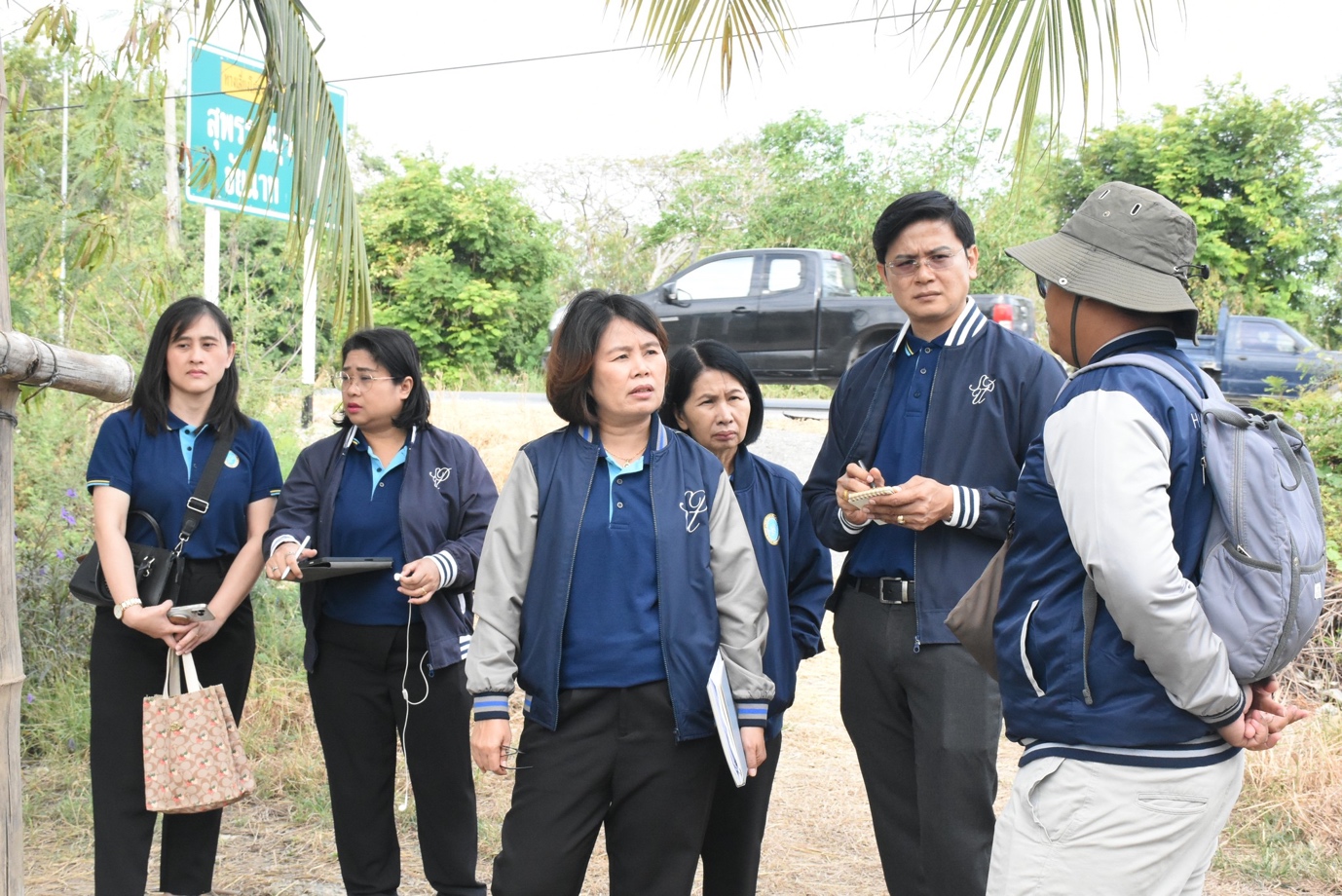
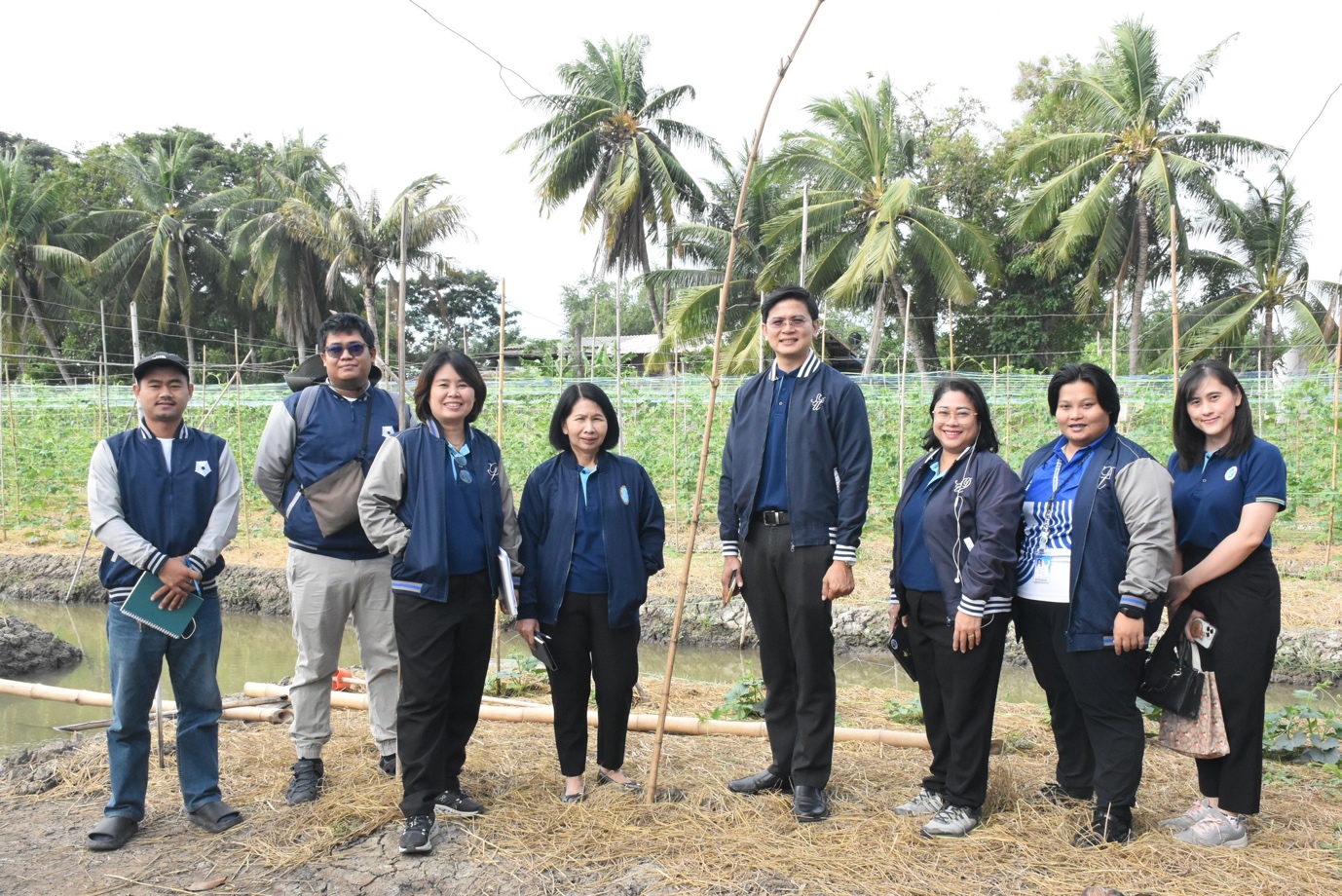
Through these integrated actions, SDU demonstrates measurable progress toward SDG 15 – Life on Land, particularly the target to promote the sustainable use of terrestrial ecosystems and agricultural resources. By implementing GAP-based production, organic farming methods, and environmental education programs, the university ensures that food produced or consumed on its campuses adheres to the principles of sustainable agriculture, biodiversity protection, and community engagement. The Hom Kachon Farm thus functions as both an educational platform and a sustainability incubator—translating policy into practice and reinforcing the university’s long-term vision for sustainable land management and food security.
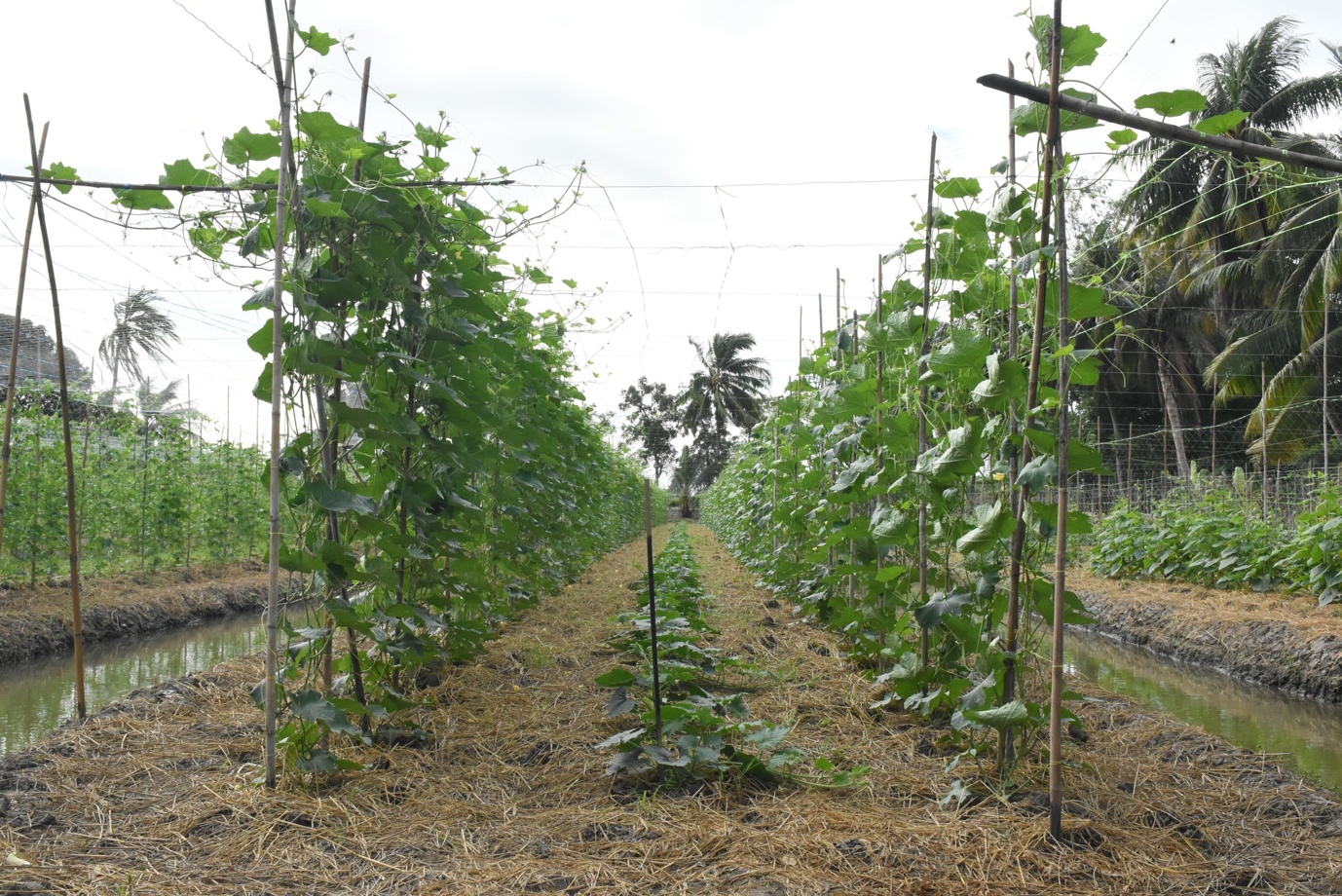
In place by 2024, these initiatives confirm that Suan Dusit University not only promotes sustainably farmed food on campus but also embeds environmental stewardship, sustainable resource use, and green innovation into its institutional identity. This holistic approach embodies the spirit of THE Sustainability Impact Ratings, demonstrating how higher education institutions can lead the transformation toward resilient, ethical, and sustainable food systemsthat nourish both people and the planet.
Reference:
